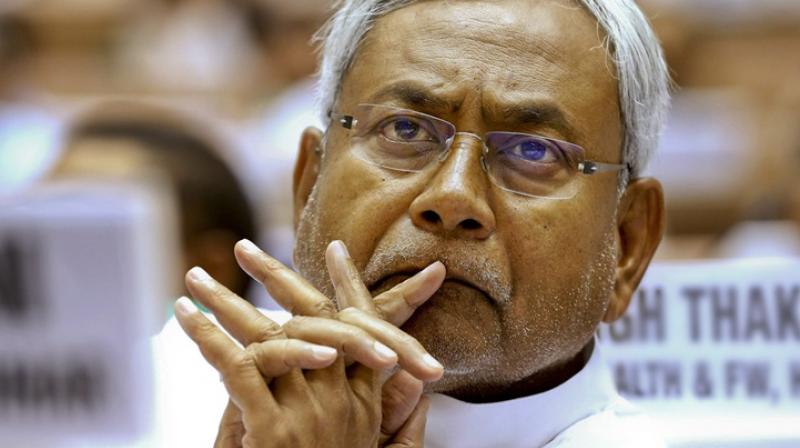'Ready to face consequences for my actions,' says Nitish Kumar on prohibition law
He hinted that the state is mulling a possible amendment to the prohibition law after reports of govt officials misusing it surfaced.

Patna: Bihar Chief Minister Nitish Kumar spoke extensively about the tough prohibition law which was enacted in 2016 in Bihar at a conference organised by JD(U) in Patna on Tuesday.
Addressing concerns, the CM mentioned that the state government is mulling over a possible amendment to the prohibition law after reports of government officials misusing it surfaced.
Nitish Kumar, in the last two years, has faced much criticism from opposition parties for banning alcohol in the state in 2016.
Since then a large number of people have been arrested in the state for possessing or consuming alcohol. Opposition parties have constantly pointed out that a lot of these people include Bihar's poorest.
They have also mentioned time and again that these people can do very little to bail themselves as bribing the police is not an option for them.
On the other hand, there are also cases of powerful politicians or government officials violating the ban. However, most of these are short-lived in nature.
An offence under the prohibition law has been classified as non-bailable, which means a suspect will have to spend time in jail and cannot seek bail as a matter of right.
According to the records, as many as 1,41,861 people have been arrested under the stringent prohibition law since April 2016 in the state. Over 8,000 are in jail, a report in The Hindu states.
Acknowledging the misuse of the law, Kumar said, “Yes, people are criticising me, but I am willing to face all the criticism and consequences of my actions."
RJD's Tejashwi Yadav, who was Kumar's deputy when the prohibition law was enacted in April 2016, has since then disowned the law that he insists was a "farce", reported NDTV.
To counter the claim that prohibition law has led to the victimisation of the poor, Kumar said, “I’ve been regularly monitoring it as well…it has benefitted a large section of the society, especially the poor and downtrodden segment.”

